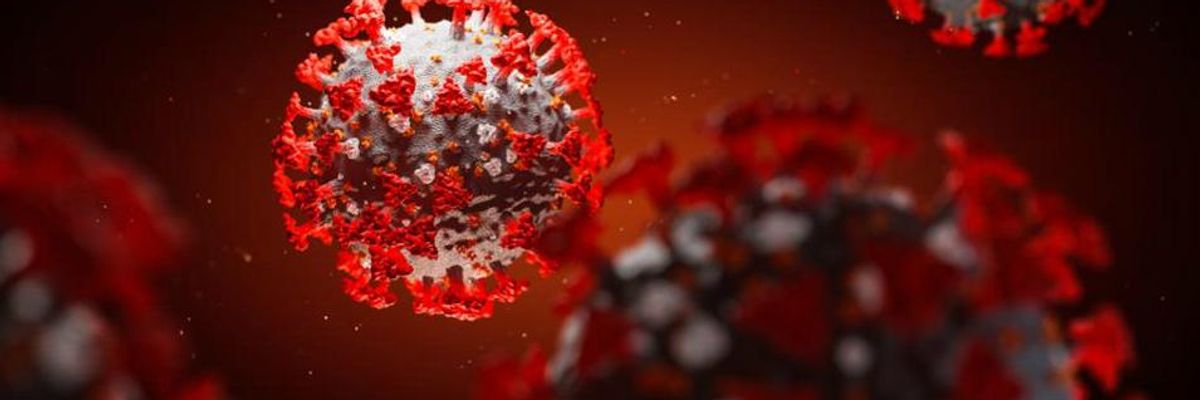In the strange, time-bending world of the pandemic, it seems like ages since Donald Trump first referred to COVID-19 as "the Chinese virus." But it's only been about a month since that appellation left the president's lips, earning praise from conservatives like Ben Shapiro, whose commentary made Trump's implied meaning explicit: that there is something alien and repugnant about Chinese culture, something that has now infected us.
Shapiro writes:
The so-called wet markets of China--the meat markets that often include wild animals ranging from snakes to pangolins--exist for a variety of reasons, ranging from price to superstitious belief in medicinal properties of exotic animals.
That's a lot of bias packed into a single sentence, whose implied messages include "ooh, yucky snakes," "those people are cheap," and "they're superstitious and ignorant, too."
While Shapiro criticizes the Chinese government, the "Chinese virus" label is not primarily intended to serve as a critique of that government's handling of the virus. There are legitimate criticisms to be made, as Joe Biden and others have done. Instead, in targeting an ethnic group for a disease, Trump--and minions like Shapiro--are tapping into an ancient strain of fear and hatred dating back at least to the 14th Century, when Jews were blamed for the Black Death.
They're also obscuring the real vectors of this disease. Somehow, Trump and his allies have never asked: How did this virus get from the wet markets of Wuhan, assuming that's where it originated, to the shores of the United States? Wuhan is both a travel hub and a center of global commerce. Business travelers, and the vacationers who drive the tourist sector, were sources for the disease's global spread.
COVID-19 reached New York primarily from Europe, not China. Italy was a center of the infection in Europe, and the deep business ties between Italy and China--including the manufacture of designer bags and cheap clothing in Tuscany--contributed to its devastating spread there.
Business ties between Europe and China run deep. As the New York Times reports, China is such a "vital trade partner" to the European Union that officials there were forced to soften a report this month criticizing its government.
As for the West Coast, a recent report suggests that one of the major sources of West Coast transmission is likely to have been January's annual Consumer Electronics Show(CES) in Las Vegas. As one attendee, who turned out to have been infected with the virus, tweeted as he was leaving: "The lounge at the #LasVegas airport sounds like an infirmary."
A virus exists somewhere between life as we understand it, and a kind of natural automaton. COVID-19 is a "bot" made physical, and it may have been the most widely-distributed product to emerge from this year's CES marketplace.
Then there is the drug company Biogen, which became a "superspreader" when an annual meeting of its senior executives spread the novel coronavirus to a large number of people in multiple states and several countries. Biogen's meeting took place during the early stages of the pandemic, which makes its decision to proceed with the annual meeting at least somewhat defensible.
Less defensible was its decision to press the flesh several days later when, reports the New York Times,
"the company's four top executives attended a huge health care conference hosted by the investment firm Cowen. At another Marriott in Boston, they held meetings in hotel rooms with potential investors. Another attendee who met some of the same investors said he heard that members of the Biogen team looked sick."
Other drug companies had already cancelled their gatherings at that "huge health care conference." But Biogen's leadership, driven by the desire to push its new anti-Alzheimer's drug, went for in-person meetings.
The market-driven practices of corporations like Delta Airlines also likely helped spread the virus, too. So did the insistence of the Trump White House, and of governors (including New York's Andrew Cuomo), on delaying decisive action to reduce the spread of the virus--delays grounded in both hubris and economic calculus.
("Excuse our arrogance as New Yorkers," said Cuomo on March 2, "... we think we have the best health care system on the planet right here in New York.")
Capitalism is also behind the calls for "herd immunity"--calls that included Texas Lt. Governor Dan Patrick's plea to his fellow seniors. "We are crushing the economy," said Patrick, "... there are more important things than living."
This reflects an ideology that openly places profit above human life. Its values are a plague on the world economy, and its global economic dominance is the vector that spread COVID-19 from the wet markets of China to the free markets of the United States. The virus is capitalism, and the vector is globalization. As the death toll continues to mount, more people may be looking to immunize themselves from a disease that's as new as the latest mutation, and as ancient as greed itself.

